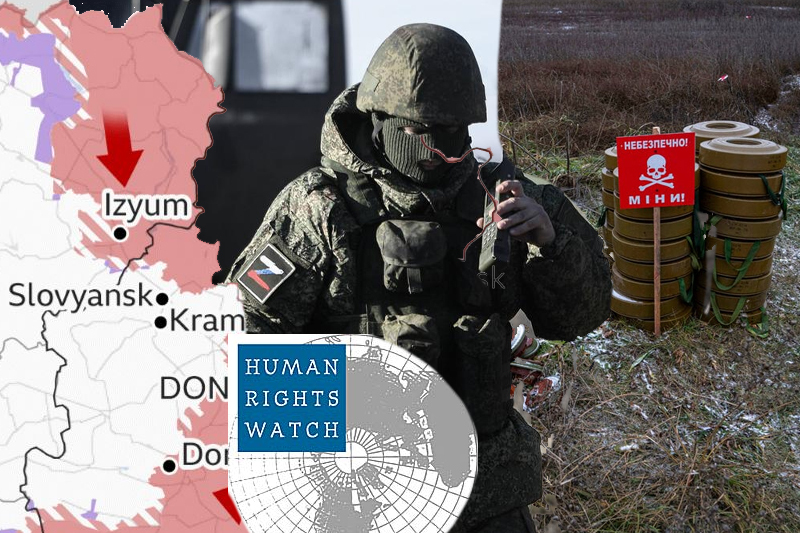

hrw calls on ukraine to probe banned anti personnel mine use
Advocacy group Human Rights Watch has urged Ukraine to investigate allegations that its military fired scores of banned anti-personnel landmines at Russian military positions in the violent battle for the eastern city of Izium last year. A report released Tuesday raises concerns over Kyiv’s intentions and credibility as Western allies pour billions of dollars worth of weapons and aid into the war-torn nation.
According to the organization, as anti-personnel mines cannot discriminate between combatants and civilians, their use violates international humanitarian law. In addition to it, Ukraine has also signed an international agreement that bans these deadly weapons – the 1997 Convention on the Prohibition of the Use, Stockpiling, Production and Transfer of Anti-Personnel Mines and on their Destruction. But Russia has not.
HRW also mentioned that it had issued three damning reports last year accusing the Russian military of using anti-personnel mines in multiple areas across Ukraine. But Moscow has repeatedly denied committing war crimes or targeting civilians.
The group said it conducted research in Izium between 19 September and 9 October, interviewing more than 100 people, including doctors, first responders, deminers, witnesses to landmine use, and victims of landmines.
Russian forces entered Izium in April and the Ukrainian counteroffensive started in September. Between April and September, residents told human rights researchers, rockets launched from Ukrainian-held territory scattered several Soviet-era PFM-1 “butterfly mines” over Russian military facilities in the city.
Researchers even interviewed healthcare workers and counted eleven casualties from these mines and 50 wounded civilians, including at least five children. Half of the cases involved amputations of the lower leg or the foot considered a common injury caused by these prohibited weapons.
Ukraine’s forces strictly follow the international humanitarian law as well as the 1997 anti-personnel mine convention, the country’s Deputy Defence Minister Oleksandr Polishchuk told HRW last November.
Blockades on the borders of the country are to be put in place on April 28 if they do not…
After putting a 12% import tax on steel items for 200 days the Indian steel sector begins its path to…
To resolve the deepening crisis of Afghanistan, which is the displacement of local people as the migrants, a collaborative meeting…
The HSR project to connect Kuala Lumpur and Singapore creates better transportation for all regional areas in Malaysia. Government records…
Scottish Water staff started their 48-hour work strike at midnight due to their escalating pay negotiation problems with the organization.…
The Trump administration has selected Kansas City as its main destination to test federal workforce reduction measures. Through the leadership…
This website uses cookies.
Read More